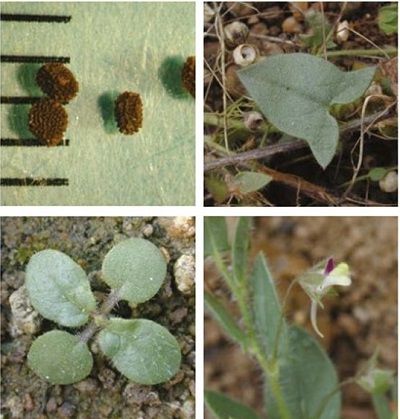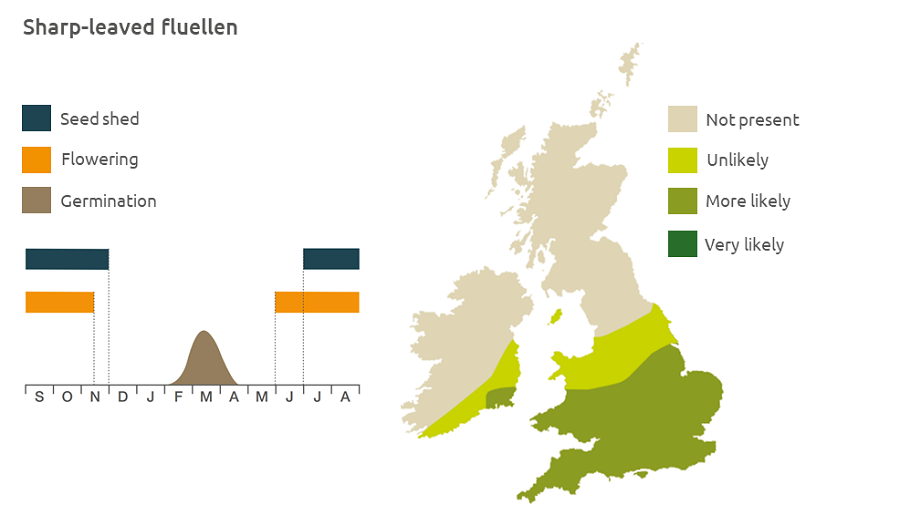- Home
- Knowledge library
- Distribution and biology of sharp-leaved fluellen in the UK
Distribution and biology of sharp-leaved fluellen in the UK
Sharp-leaved fluellen is a UK broad-leaved weed found in arable fields, field margins, gardens and waste ground. Find out how to identify and control it.
Overview
Sharp-leaved fluellen (Kickxia elatine) is a poorly competitive species found in uncompetitive crops: it is most successful in perennial crops and row crops. It is seldom found in competitive winter crops or grass ley rotations. Seeds germinate in spring and set seed usually after harvest. Plants often grow lower than the combine cut, so can set seeds in late-ploughed fields.
- It has value to biodiversity
Description
It is a hairy, leafy, annual dicotyledon, creeping to 50 cm, or weakly upright.
Key features
Plant: The leaves are arrow-shaped with backward-pointing lobes.
Flower: The flowers are like small snapdragon flowers, yellow with a purple upper lip.
Lookalikes
Sharp-leaved fluellen may be confused with round-leaved fluellen, although the cotyledons are more oval and notched at the tip, and the first true leaves end in blunt points.

Location and life cycle

Geographic distribution
Sharp-leaved fluellen is found in arable fields, field margins, gardens and waste ground.
Soil type
It likes weakly acid to weakly alkaline soils, including light soils, over boulder clay. It can tolerate poorly aerated soils as it is shallow-rooted, but prefers fairly light conditions.
Seed statistics
- Seed longevity: >5 years
- Seed weight: 0.4 mg
- Seeds/flower: 17
- Seeds/plant: 1,800
Management
It is readily controlled by cultivations.
For advice on herbicides, please speak with your agronomist or adviser.
When was this information last updated?
This page is based on content from the encyclopaedia of arable weeds publication. Since it was first released in 2008, the publication has been redesigned several times but not revised. However, it remains a good foundation for general information on the distribution and biology of weeds.

